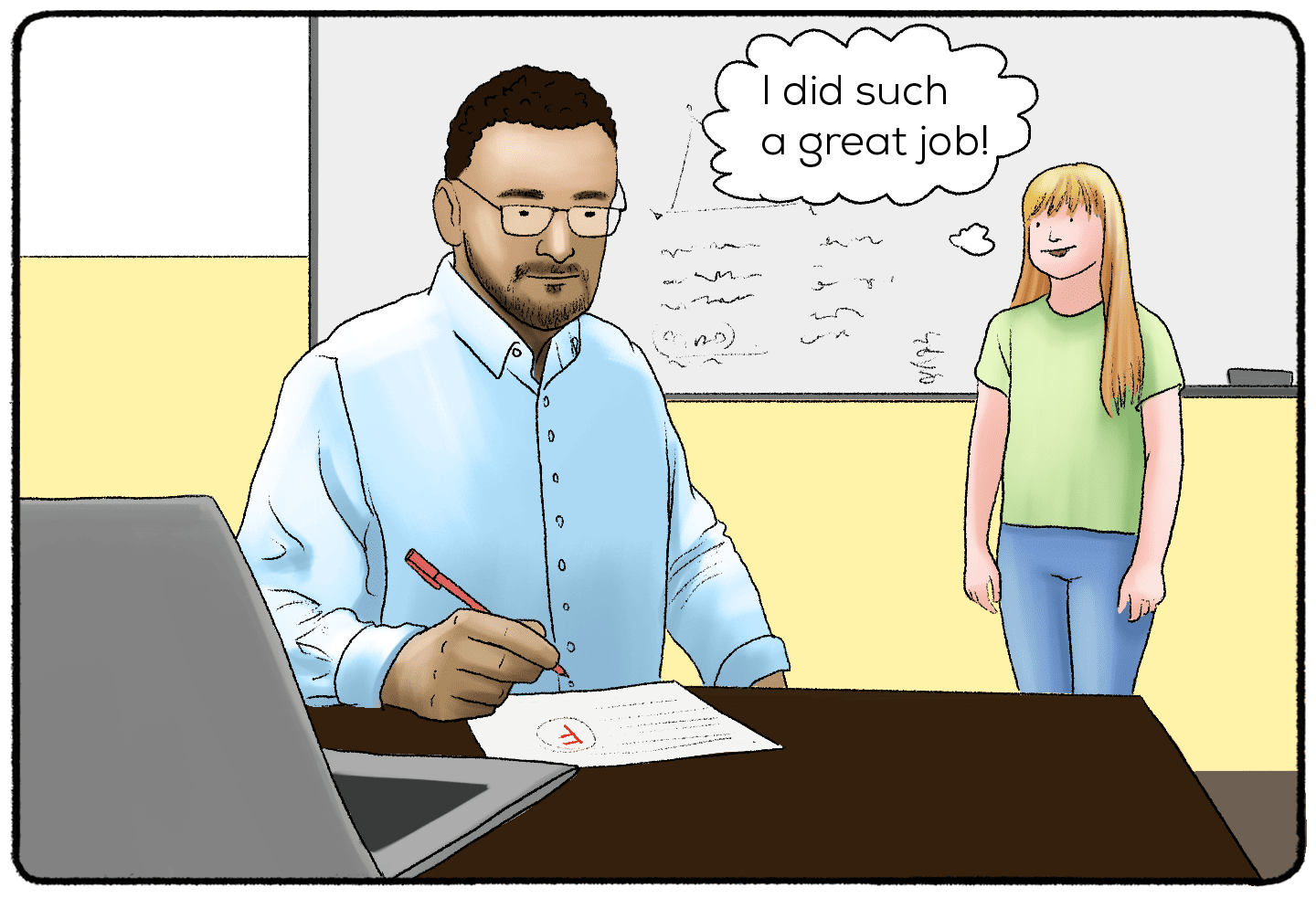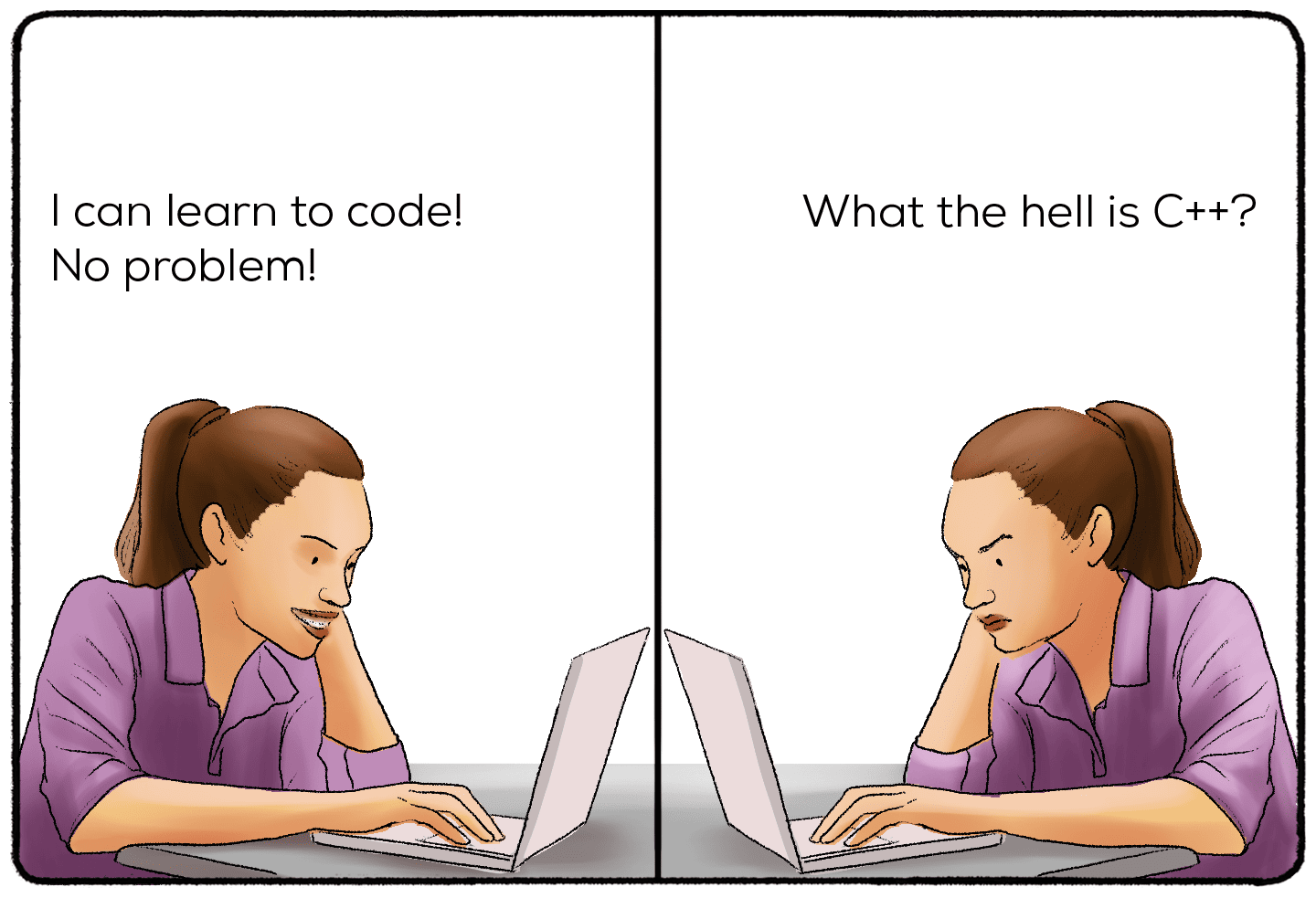Tell me if you know someone like this. They walk around like a hot shot, claiming to be an expert in their field or at a certain skill, and no one can question them. No one can give them any criticism. No one could even try to convince them that they’re not the best at what they do.
And the worst part is - this person isn’t even good at what they do.
Even if you don’t know someone personally like this, you have probably seen them in documentaries or movies. They're one of the many victims of the Dunning Kruger Effect.
What Is the Dunning Kruger Effect?
The Dunning-Kruger Effect is a cognitive bias named after the psychologists who first started researching it. It’s the idea that people who are incompetent are more likely to feel confident in their abilities. Without the knowledge that they aren’t very skilled, they turn to overinflated confidence that they don’t recognize.
This almost feels like a double whammy. A person has little knowledge in a subject and they have very little knowledge of the fact that they have little knowledge. They genuinely believe in their skills, even to the point that they get defensive if someone questions their abilities or tries to challenge them.
Examples of the Dunning-Kruger Effect
On the freelance subreddit, a user posted that a reality check put them face to face with how the Dunning Kruger Effect had impacted their early career. Although you may not be aware of how you overinflate your abilities, you may recall some examples of famous business leaders or even family members who fall prey to this bias.
Fyre Festival
Take the guy who founded the Fyre Festival. He had no knowledge or experience in starting a music festival, but his confidence took people all the way up until the day it was canceled.
Fyre Festival is an extreme example - after all, the guy went to jail for promoting this music festival that he couldn’t actually put on. And since this story made headlines, many people have questioned whether he is one of the many people who have been led astray by the Dunning-Kruger Effect. The Dunning-Kruger Effect affects a lot of people, including CEOs, entry-level employees, and students.
Theranos Executives
If you’ve read the book Bad Blood, a narrative about the infamous blood-testing start-up Theranos in Silicon Valley, certain anecdotes stand out as alarming depictions of hubris and deception within the company. Not only does the book recount tales of gross incompetence and overinflated confidence, but it also provides glimpses into the troubling behaviors of its executives, including its founder and CEO, Elizabeth Holmes. Holmes, who was often at the center of Theranos' promises and claims, displayed traits reminiscent of narcissism. Her unwavering belief in her own vision, even in the face of glaring scientific and business challenges, combined with her ability to captivate investors and media, are indicators of this.
Additionally, the book mentions an episode where scientists within the start-up became increasingly exasperated with the former Chief Operating Officer of Theranos. This individual frequently spoke on topics he had little understanding of and was notorious for chastising those who dared to challenge him or suggest that his vision was unfeasible. As a way to underscore his lack of expertise, some scientists would craft a “prank” wherein they would invent terms and observe as the COO would unsuspectingly incorporate these fabricated terms into his dialogues and presentations, always with unwarranted self-assurance.
Friends and Family
Does this remind you of a family member at the dinner table or an annoying supervisor at work? Yeah, me too. However, being affected by the Dunning-Kruger Effect is not synonymous with a lying person or a bad person. Everyone is affected by this cognitive bias in the same way that everyone is affected by the doubt/avoidance tendency or other cognitive biases.
Where Did the Dunning-Kruger Effect Come From?
David Dunning and Justin Kruger first coined the term “Dunning-Kruger Effect” in the late 90s. One of their first studies asked participants to rate themselves on various tests. The people who scored in the lowest percentile for the tests were the most likely to overinflate how great they were.
Participants who scored in the 10th percentile of a math test, for example, rated themselves in the 67th percentile. Talk about a stretch.

In another study, Dunning and Kruger asked people to rate their abilities in certain subjects. Then, they provided made-up words that supposedly went along with the subjects. The people who thought highly of themselves were more likely to say that they were familiar with the made-up words.
The Origins of the Dunning-Kruger Effect
In the backdrop of growing research on cognitive biases in the late 20th century, psychologists David Dunning and Justin Kruger of Cornell University stumbled upon a unique bias: some individuals grossly overestimate their abilities. This observation was sparked by an unusual news story of a man who believed lemon juice made him invisible to bank cameras, leading him to rob two banks.
Dunning and Kruger's subsequent experiments throughout the late 90s consistently showed that individuals with lower abilities in specific areas often overestimated their competence, while those more skilled tended to underestimate their capabilities. This phenomenon, where the least competent individuals were the most overconfident, was coined the "Dunning-Kruger Effect."
The effect highlighted a cognitive bias where recognizing one's incompetence often required the same skills one lacked. It quickly became a foundational concept in psychology, explaining behaviors from overconfident coworkers to misinformed public figures.
What Causes The Dunning Kruger Effect?
Of course, not everyone who is grossly incompetent is going to believe that they are highly skilled. And people may have confidence in themselves because they have built up the skills and knowledge required to be an expert in a certain subject. But the Dunning-Kruger Effect can help to explain why some people genuinely believe they are great at a subject they know very little about.
Why are people affected by this cognitive bias?
One explanation is that with a low level of competency, you “don’t know what you don’t know.” People who have barely explored a subject may not understand how much there is to know. Without knowing anything about American sign language, for example, you might not know that there are facial expressions to learn, “accents” that you can pick up, or ways to deliver a story that is completely different from the English language. Without knowing anything about coding, you may not know that there are multiple “languages” of coding, including Python, C++, and Ruby.

Only when we have gained a certain level of knowledge can we start to accurately assess how much we know (and how far we have to go until we become an “expert.”
Here’s another way to look at the phrase “you don’t know what you don’t know.” Without a high level of competence, people may not be able to recognize when they’ve made a mistake. They may brush off the incident or explain it away. Whether they spot the mistake themselves or someone points it out to them, they may not be able to recognize that the mistake is due to a lack of knowledge.
How to Avoid The Dunning-Kruger Effect
The original study that coined the term Dunning-Kruger Effect was pretty harsh. The psychologists said that “overestimation occurs, in part, because people who are unskilled in these domains suffer a dual burden: Not only do these people reach erroneous conclusions and make unfortunate choices, but their incompetence robs them of the metacognitive ability to realize it.”
It’s not something that any of us want to fall prey to. In everyday examples, the Dunning-Kruger Effect may make us look like an idiot in front of peers and supervisors. In more extreme examples, our confidence could lead people astray and even result in criminal charges. (The founders of both Fyre Festival and Theranos have been charged with federal counts of fraud.)
The best way to avoid falling prey to this effect is to continue to question your abilities and continue learning. There is always more to know. As you continue to build knowledge and skills in a certain area, you will continue to build the ability to correctly assess your skills.
